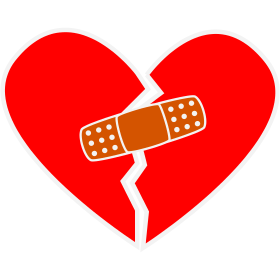The nuclear, 2-parent family, the gold standard of American parenting, is a relatively new concept. In the past and present, America and communities around the world function well—perhaps better—with a more communal approach to raising children.
The pandemic, I’ve noticed, has been picking at the scab that holds the nuclear family together. Quarantined families, in many cases, have become truly nuclear. A few of my students report that they literally haven’t had a face-to-(masked)face conversation with another human since last March. Most of my students report that they are spending way more time with their families than they ever did.

Of course, in some cases this has been a wonderful gift that Covid has given families. Many of us were stressed out and overscheduled, and the last nine months gave us some breathing room. We rekindled interest in cooking or crafting. We had time to play board games with our kids. We finally got around to painting their bedrooms.
But let’s face it. The human organism was not designed for the nuclear family. We thrive in situations where small communities trust and support each other, shifting the responsibilities of raising children to multiple adults who each have skills to offer. In that situation, no parent needs to be the perfect parent for their children.
But here we are, so what do we do about it?
Some families are thriving, and to you I say, good job! Enjoy!
But other families are experiencing more stress than ever:
- Spouses have seen their relationships deteriorate
- Teens are angry and resentful, or depressed and withdrawn
- Kids are missing daily infusions of joy they used to have when they and their families interacted with others
I’ve been talking with my teen students on how to deal with this, and here are the fixes we came up with.
Remember that you can’t control other people’s emotions
This is such a hard lesson! Depending on our personalities, we respond to our family members’ emotions (especially negative ones) by either blaming ourselves or blaming them, internalizing negative emotions or lashing out with them.
Remember that we can control our reactions
We want to blame our reactions on others, but really, how we react is our choice. But it is true that we have to practice reacting appropriately. Few of us are born ready-made with Zen-level patience!
We can do a few things to practice controlling our reactions:
- When we react badly, go back and figure out what we should have done. Then tell the person we reacted to about it—aka, apologize.
- Try to stop when we see ourselves following a pattern of reacting and blaming.
- Practice the healthy responses when possible.
Parenting peels off scabs of its own
Parents generally find that parenting peels off the various scabs that they formed to deal with life. Some parents don’t want to question their own reactions, and it becomes especially hard for them once their teens assert themselves as individuals. My teen students see that all the time, and it’s confusing to them. As parents, we can help them by verbalizing what’s going on.
“Hey, I’m sorry I’ve been complaining so much. Being stuck in the house and going to Zoom meetings stresses me out!”
“When I was growing up, my family just kept out of each other’s way so we never had to face the fact that we didn’t get along. But now, we’re stuck together so let’s try to figure this out.”
Be empathetic about our teens’ situation
Teens are stuck in between. They hopefully experienced some independence before Covid hit, and now they are stuck with and completely dependent on their families. We parents need to acknowledge that and support our teens in seeking whatever independence they can find—and that’s usually going to be done through a screen.
Don’t give up on each other
I tell my teens whose families are struggling that it’s important not to give up on their relationship with their parents. If we assume that our family members are doing the best they can, we will feel better about our relationships with them. We all have to cut each other some slack right now.


